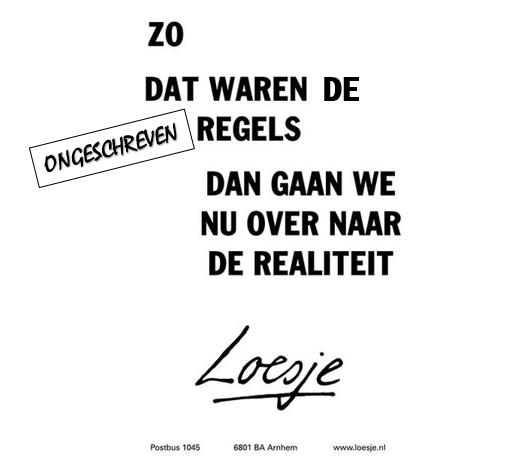
When the team’s unwritten rules start to bite
I was recently asked to coach a self-managing team that had been ‘stuck’ for years. Stuck in the same patterns, making effective collaboration far from a reality.
A friendly facade
At first sight I found a friendly team. Friendly to me and friendly to each other. Friendly was a good description of the facade they put up. Although it soon became clear that they thought all sorts of things of each other (but did not tell each other). It was like a powder keg that was about to explode. And when I ‘lit the fire’, it didn’t take long for the flame to catch. Norms and values had been hit and true feelings were released. As a result, people were no longer kind. They became hard and judgmental. And no longer willing to do anything for or really listen to each other.
Surviving in the workplace
The reason for this team trajectory was to improve customer service. The team needed to work more closely together. While they were physically in different locations. They were no longer effective or efficient. They were doing too much work that wasn’t theirs. They no longer felt in control. And they were working side by side. It was a matter of survival in the work place. Change could no longer be put off. The urgency was clear.
Discuss the unwritten rules!
During the second session, I asked them about the unwritten rules of the team. Rules like ‘The senior member of the team decides on the distribution of work’ came up. ’You are available to your colleagues even when you are off’. And ‘we are willing to help each other’. We then made the unwritten rules explicit and checked each other’s perceptions. This made it clear which unwritten rules were perceived at all. And the rules took on a different form and connotation. Finally, they decided which rules were still useful and which were not. A weight was lifted from the team….
A new perspective and a new sound
This conversation had a huge impact on many levels; pent-up feelings were expressed, ordered and ‘cleaned up’. The noise was transformed back into a clear and fresh sound. You could feel the change in energy and connection. They saw perspective and took initiative again. They felt confidence and a genuine intention to work together with urgency.
By slowing down, you can speed up again
You cannot skip this stage. You have to engage with each other. No matter how tense it is. Sometimes an objective outsider can hold up a mirror better than you can as a team. We often don’t take the time to do this at work, but these kinds of complicated conversations really pay off. By slowing down, you can speed up again. It boosts cooperation and therefore the team’s performance. After all, a friendly façade will get you a long way for a while, but ultimately not very far….